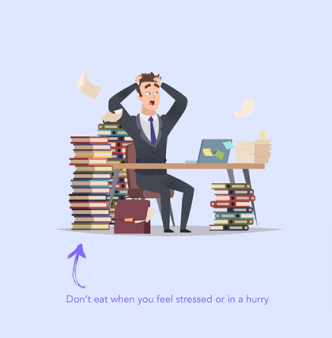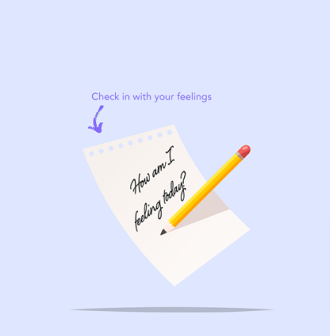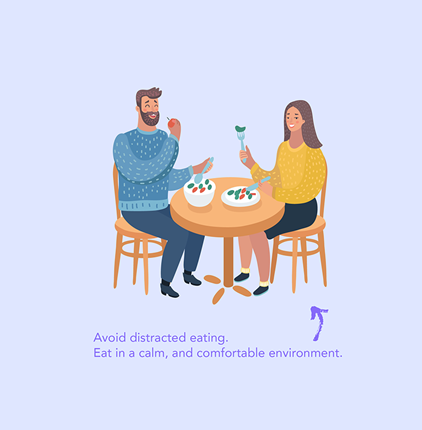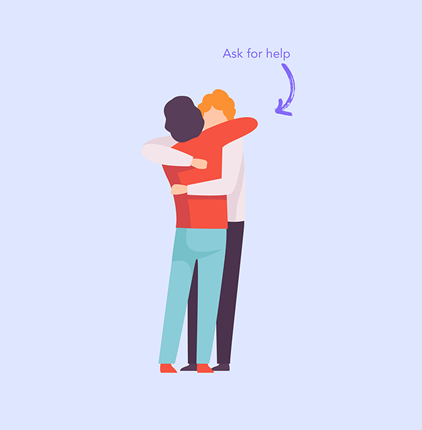NUTRITION
Wellness: Behavior & Nutrition
Did you know our emotions and state of mind play a powerful role on our overall health and weight? Learning what emotional eating patterns you might have and avoiding the trap of yo-yo dieting can benefit your mental and physical health.
Creating healthy habits can begin with gaining more awareness around how your thoughts impact your daily choices. Nicole Romano, Behavioral Therapist and Founder of Behavioral Nutrition and Optimal Life Science, dishes out behavioral nutrition facts and simple tips to improving your health for our 85th Healthier Habits campaign.
Let’s start off with our Gut-Brain Connection.
Gut flora (aka gastrointestinal flora) are the various microbes in our bodies and are key players in our mood. Research has shown that gut flora impacts mental health including symptoms of depression, anxiety, and stress.1
Chronic stress can lead to gut flora imbalances.2 Stress during a meal can cause the constriction of blood vessels, increased heart rate and reduced blood flow to the gut, which negatively impacts the digestive process.
On the other hand, when you’re relaxed during a meal, blood flow to the gut is increased, which supports the digestive process.3

Tip #1: Don’t eat when you feel stressed or in a hurry.
Instead, be mindful before, during and directly after your meal. Creating the time and setting for meals, where you aren’t rushed or tense, creates healthy mealtime behaviors and supports your digestive system for better gut health.
Food-Mood Connection
Have you ever thought of why you tend to pick some foods and meals over others? Negative emotions as well as positive emotions can be at play in why you eat certain foods when you are feeling down versus when you are feeling happy.
The connection between emotional eating patterns and underlying feelings of loneliness, anxiousness, boredom or stress is what I refer to here as the Food-Mood Connection.
If you are cognizant of the fact that you often choose processed low nutrient foods as a way to sooth yourself when experiencing uncomfortable emotions, follow these behavioral tips:
Tip #2: Take an inventory of how you are feeling before you open your fridge or decide to order that take out meal. Taking the time to gain awareness around emotional eating triggers can help you break the automatic behavior of selfsoothing with food when you feel certain emotions.

Tip #3: If you’re feeling negative emotions prior to eating a meal, make a choice to: first do something that can help you emotionally reset before eating.
Emotionally resetting could simply mean taking a moment to switch gears. Consider using one or more of the following behavioral techniques:
- Taking a walk while listening to inspiring music
- Write in a journal to help put your feelings on paper.
- Play with your dog or other pet
You will be amazed at what you can uncover when you take the time to help emotionally shift your mood.
Retraining Your Automatic Eating Habits
You might be surprised to know that mealtime behaviors play an important role in maintaining a healthy weight. It has been shown that adults and children who eat in front of a television are more likely to overeat compared with people who eat together with others at the table. Research has also shown that overweight and obese adults who struggle with overeating are more likely to overeat in isolation.4,5

Tip #4: If you find yourself engaging in mindless eating behaviors avoid any distracted eating, such as eating while driving, working on your computer, watching television or on your phone.
Tip #5: Make a choice to eat your meal at designated location (i.e. dinner table) and in shared company with others. This can have a powerful effect on your sense of satisfaction during and after the mealtime experience.
Benefits and Tips to Mindful Eating
The foods you eat can have a direct impact on your energy and concentration. Becoming aware of how high nutrient meals versus processed foods impact your energy can help you to make better food choices.
Tip #6: Consider each meal as an opportunity to bring awareness to your experience of the foods you eat.6
Tip #7: Notice how some foods might give you more sustained energy and take note of this when choosing your meals.
What you need to know about a Binge Eating Disorder
Did you know Binge Eating Disorder is the most common eating disorder (BED)7? Binge eating affects an estimated 2.8 million people in the United States.7 In some cases, depression, extreme dieting, and stress can be a culprit in why many people develop Binge Eating Disorder.
BED is characterized by eating a large amount of food in a short amount of time, as well as a feeling of loss of control about what or how much you are eating. If you binge eat at least once a week for 3 months and feel it has been out of control, you may be struggling with this type of eating disorder, and should seek out a specialist for help.

Tip #8: Find a therapist, dietitian and psychiatrist if you believe you have Binge Eating Disorder.
This multidisciplinary team approach can be the most effective in finding recovery. The therapist can help implement behavior modification techniques while bringing awareness to the emotional aspects that can trigger a binge. An eating disorder dietitian can review and implement a balanced and satisfying meal plan that will help prevent common restricting and binging eating patterns. A psychiatrist can recommend specific medications known to support recovery when working with a therapist and dietitian as part of a team.
To find more tips on living a healthy lifestyle, visit Optimal Life Science. www.optimallifescience.com. If you or a loved one is interested in clinical support for Binge/Over-Eating and Food Addiction you can contact Behavioral Nutrition at [email protected] or call 617-595-7044 to find out more about how you can get help.
Nicole Romano, BS, MA, LMHC
Founder of Behavioral Nutrition, Founder of Optimal Life Science, Behavioral Therapist and Medical Writer
Behavioral Nutrition, Inc. and Optimal Life Science, Inc.
Website: www.behavioralnutrition.org; Mind-Body Health and Lifestyle Education/ Optimal Life Science
Social Media: Behavioral Nutrition-Twitter, Behavioral Nutrition-Facebook, Optimal Life Science- Facebook; LinkedIn
Nicole Romano is a licensed counselor, who has a bachelor’s degree in exercise science and a master’s degree in mental health counseling and behavioral medicine with a specialization in medical nutrition. She has been a healthcare consultant, eating disorder therapist and medical writer for over 10 years. As the founder of an outpatient holistic eating disorder clinic, she has helped hundreds of clients who have struggled with disordered eating. She continues to provide corporate training events on topics including eating disorder prevention and treatment, weight management techniques and how lifestyle choices impact mental health.
References:
- Thakur A, Shakya A, Husaun GM, Emerald M, Kumar V. Gut-Microbiota and Mental Health: Current and Future Perspectives. SciMedCentral, 2014.
- Moloney, R.D., Desbonnet, L., Clarke, G. et al. The microbiome: stress, health and disease. Mamm Genome. 2014. 25, 49-74.
- C.E. Integr Med (Encinitas) 2019 Aug; 18(4):48-53.
- Mindful Eating: A Review Of How The Stress-Digestion-Mindfulness Triad May Modulate And Improve Gastrointestinal And Digestive Function
- Meule A, Gearhardt AN. Food Addiction in the Light of DSM-5. Nutrients. 2014; 6(9):3653-3671.
- Nelson J.B. Mindful Eating: The Art of Presence While You EatDiabetes Spectr. 2017 Aug; 30(3): 171-174.
- https://www.healthline.com/health/eating-disorders/binge-eating-disorder-statistics#Long-Term-Effects
